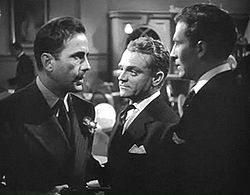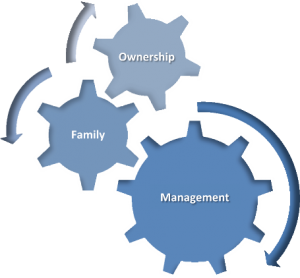I had the opportunity to present “Beating the Boomer Bust” twice this week, one of which was recorded for a Texas Public Radio show this weekend. For those who aren’t familiar with the piece, it discusses the massive changes that are unfolding as Boomers retire from their businesses.
As usual, members of the audience said afterwards “I knew all those things, but I never thought through the implications before.”
A quick recap before I get into today’s topic. “Beating the Boomer Bust” is a look at the perfect storm facing retiring owners who plan to sell their businesses. That largest small-business-owning group in history will be selling all at the same time. The number of buyers is about half as large as the number of sellers, and the buyer generation (Gen X) isn’t interested in the type of work that small business entails.
It is that group, the buying generation, that could be facing a demographic squeeze that changes them into a new “lost” generation.
The first Lost Generation is the group born in the decades just before the beginning of the 20th century. The oldest members of that group were in their teens and 20’s during WWI, which decimated the ranks of the young men, although less so in the USA than in Europe. Those who returned were traumatized, and more worried about enjoying life than making their mark on the world.
Enter the Roaring 20’s. The Lost Generation writers, Gertrude Stein, Ernest Hemingway, F. Scott Fitzgerald and T.S Eliot among others, promoted both hedonistic lifestyles and a cynical outlook towards humanity. The 20’s generally bring to mind Flappers, Speakeasies, Gangsters, and a spectacular finish with the Great Depression of 1929.
humanity. The 20’s generally bring to mind Flappers, Speakeasies, Gangsters, and a spectacular finish with the Great Depression of 1929.
Many generations have been characterized as wastrels when they are young. The Lost Generation had the added misfortune to reach their productive years, their 30’s and 40’s, just as the economy made it very, very difficult to get ahead. Now, let’s skip forward to Generation X.
What Boomer hasn’t complained about the work ethic of Gen X? Gen X was born and raised in a time of plenty. They have grown up in an economy that was fueled by a giant generation of workaholics, the Baby Boomers. Their values system places a far lower premium on business and financial accomplishment. Self-actualization comes first, accumulating things is secondary.
Disclaimer: Please don’t send comments about “I’m a Boomer and not a workaholic” or “I’m an X’er and work very hard.” No generational generalizations are universally applicable. I get it.
Now they have the added misfortune of being in their 30’s and 40’s when the economy isn’t very receptive to building wealth or rapidly expanding a business.
At first blush, I didn’t think that was a problem. With one X’er for every two retiring Boomers, there should be more than enough opportunity for even the marginally interested to succeed. The more I think about it, the more I begin to wonder whether that will be the case. Two other factors are coming into play, and both are huge.
The Boomers aren’t getting out of the way, and the Millennials are coming on fast.
Boomers haven’t saved enough to retire in comfort. They can’t  depend on the government to make it up for them. They are healthier than any previous generation. If 60 is the new 40, why would they (outside of the public sector) suddenly step down at 65? They want to be busy, and they want to be wealthy. Many, if not most, are planning to spend at least a few additional years in that pursuit.
depend on the government to make it up for them. They are healthier than any previous generation. If 60 is the new 40, why would they (outside of the public sector) suddenly step down at 65? They want to be busy, and they want to be wealthy. Many, if not most, are planning to spend at least a few additional years in that pursuit.
The Millennials (depending on who you ask, roughly the generation born between 1985 and 2005) are coming of age in a difficult environment. Jobs are scarce, finances are lean, and the position of America in the world is changing. All indications are that the Millennials will push harder than the X’ers to get what they want.
Where the X’ers are widely characterized by their sense of entitlement, the Millennials clearly expect their lifestyles to be a direct outcome of their success in work.
So this is what leads me to ask about a Lost Generation.
The Big Picture: 78 million Boomers, still working hard, and delaying their exit from the business arena. 38 million Gen X’ers, with high expectations and lower motivation. 80 million Millennials coming on fast and intent on competing for what they want.
The Small Picture: X’er in his late 40’s who has spent the last 20 years in business telling the employer how he wants his job to fit his lifestyle. He is waiting for a late 60ish Boomer in front of him to get out of the way. When it finally happens, he suddenly finds that there is a Millennial in his late 20’s who earns less and works more waiting to leapfrog him.
out of the way. When it finally happens, he suddenly finds that there is a Millennial in his late 20’s who earns less and works more waiting to leapfrog him.
If you are a Boomer business owner who can’t find the next generation of leadership among your X’ers (and there are millions of you), start looking at your Millennials while you still have some time to train them.
Painting: Han Wu Shen “Young Worker” at paintinghere )
